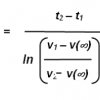I fixed that for you.
It is possible that a maximally great being does not exist.
If it is possible that a maximally great being does not exist, then a maximally great being does not exist in some possible world.
If a maximally great being does not exist in some possible world, then it does not exist in every possible world.
If a maximally great being does not exist in every possible world, then it does not exist in the actual world.
If a maximally great being does not exist in the actual world, then a maximally great being does not exist.
Therefore, a maximally great being does not exist.
So, let's take it one premise at a time.
1, It is possible that a maximally great being does not exist. What do you think? Give reasons, not Logical Fallacies. Try to control your name calling.
The answer to your so called fix is, no. There are things greater than others.
The Ontological argument states:
1. It is possible that a maximally great being exists. What is a maximally great being?

































 This topic is locked
This topic is locked














